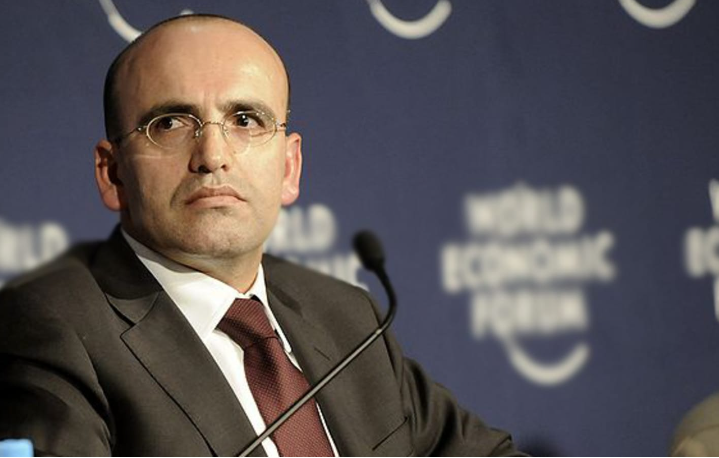The Turkish economy is currently grappling with significant inflation challenges, forcing adjustments from both authorities and market participants. According to recent surveys, the inflation forecast has seen some notable updates, reflecting the complex economic environment.
The Central Bank of Turkey’s recent survey revealed heightened inflation expectations, with the year-end Consumer Price Index (CPI) forecast rising to 43.31%, up from the previous projection of 42.95%. This upward revision underlines the persistent economic uncertainties affecting consumers and businesses alike.
Salary increases and elevated prices, particularly for essentials and energy, are straining household finances, leading to predictions of reduced purchasing power. Many experts have raised concerns over the consistent escalation of inflation and how it may erode consumer confidence.
Finance Minister Mehmet Simsek expressed optimism, indicating expectations for inflation to dip starting in August. He noted, “Despite the temporary effects leading to increased inflation last July, 12-month inflation forecasts have now improved to 28.7% from the previous 30.02%.”
This hopeful outlook doesn’t overshadow the reality of current conditions, including higher prices affecting everyday goods. Simsek’s statement emphasized the necessity for continuous monitoring and potential policy adjustments to mitigate inflationary pressures.
Meanwhile, the Minister of Treasury and Finance pointed out the significance of inflation corrections, calling for necessary reforms to existing tax systems. He explained the recent tax liabilities arising from inflation adjustments, which could burden businesses already facing the strain of economic uncertainty.
The scrutiny surrounding tax regulations is growing, especially as critics argue the measures might inadvertently push businesses toward financial distress. Many industry leaders believe the regulatory framework should accommodate the unique pressures posed by inflation without imposing extra financial burdens.
Residents are also keeping close tabs on potential currency fluctuations; the USD/TRY exchange rate is now projected to settle at around 37.27 by year-end. This slight adjustment highlights the interconnectivity of inflation expectations and currency stability.
Turning attention to growth forecasts, the recent survey maintained Turkey’s overall growth projection at 3.4% for the year. While modest, it reflects hopes for steady progress amid challenging economic conditions.
Household expenditures have been on the rise, especially amid fluctuated prices for key commodities. Economists attribute these dynamics to international price changes and localized economic policies.
The survey was part of the Central Bank’s effort to gauge sentiment and economic expectations among market players, gathering insights from 72 participants, predominantly from finance and industry sectors. This data is pivotal for shaping monetary policy moving forward.
President of MÜSİAD Bursa, Alparslan Şenocak, discussed the impact of inflation adjustments on business metrics, stressing the need for reform. He stated, “While inflation adjustments can increase asset values on balance sheets, they also introduce new tax pressures on vulnerable businesses. Ongoing conversations about limitation and reform remain critical to sustaining operational viability.”
The central bank is also monitoring long-term inflation expectations, which survey responses indicate are improving steadily. The anticipated inflation for the next 24 months now stands at 19.3%, providing some relief to market analysts as they assess stability moving forward.
The growing sentiment among economists portrays cautious optimism about inflation rates tapering off as price adjustments become more manageable. By focusing on sound economic policies and interventions, the Turkish government aims to stabilize inflation to encourage consumer spending and investment.
Inflationary dynamics and regulatory shifts will undoubtedly remain central to discussions as stakeholders and policymakers navigate the upcoming months. Retail prices continue to be under pressure, compelling consumers to adapt as purchasing patterns shift.
Overall, the complex interplay between inflation expectations, currency valuation, and fiscal policies will dictate Turkey’s economic course as it looks to solidify stability. For now, the path forward will require collaborative efforts across sectors to manage the strains imposed by inflation.
